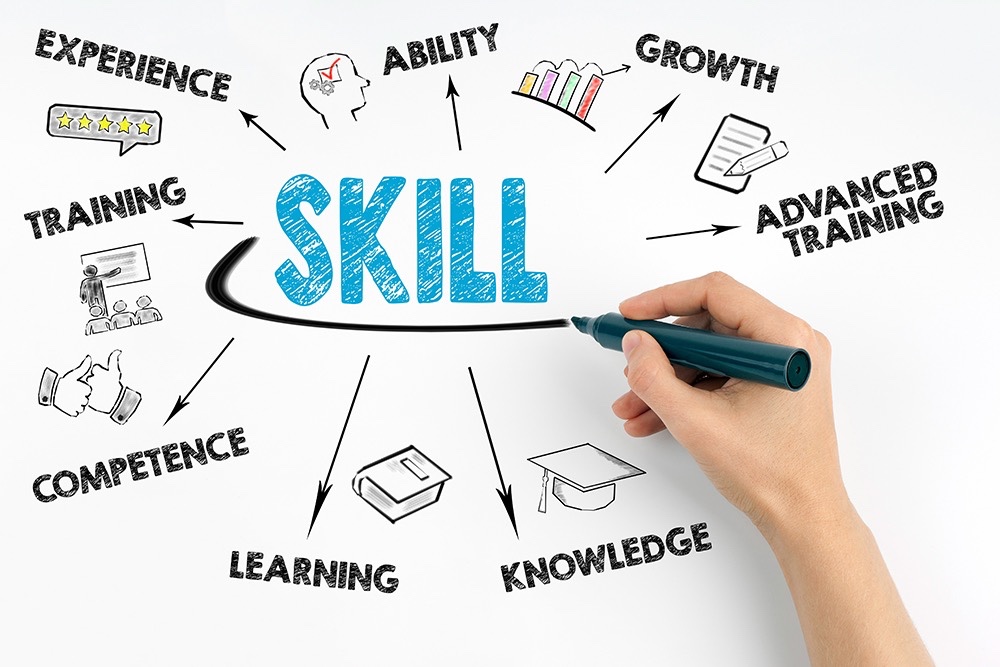This is a guest post with edits by Lei Han
Whether you work for an employer who encourages growth or you’re on your own when it comes to professional development, it’s possible for you to continually evolve at any age and in any job.

Professionals Should Develop a Growth Mindset
No matter if you are an employee, entrepreneur, or freelancer, you can develop a growth mindset. A growth mindset allows you to always recognize and take advantage of learning opportunities by purposely seeking them out. You can commit to growth in a number of ways:
- Take a DIY approach to learning: With so much information available, there’s no excuse for not diving into a topic to learn more. Starting with a simple Google or YouTube search, you can be on your way to learning about a specific topic. As you explore, jot down questions you have and references you don’t know yet, then look those up next. Simply follow the trail of learning and take notes along the way.
- Sign up for an online course: There are all sorts of courses to take for either free or a low fee, and you can do it online instead of finding a local classroom. Some courses will simply expand your knowledge, while others can provide you with a certificate upon completion.
- Get hands-on training: If you have the time to dedicate to an internship or a cooperative learning program (where you work while also taking classes), consider experiential learning. Hands-on can be the best way to learn, and securing an internship or a part-time job in your field is an excellent resume builder.
- Join a peer group: The easiest way to join a group of peers is on social media — both Facebook and LinkedIn have a number of professional groups in a variety of niches. From there, you may learn about other groups, either online or in-person, that interest you. Peer groups allow you to brainstorm, trade ideas, get feedback, ask questions, and offer advice.
- Find a mentor: A mentor can speed up your development as he or she can guide you based on your specific job, skillset, and experience. Finding a good mentor is however not easy. Here are five qualities of a good mentor and how to ask someone to be your mentor.
- Ask about funding for continuing education: Even if your job doesn’t have education integrated with the workplace, they may have a tuition reimbursement program. Find out if your company will fund any specific degrees so that you can continue your education.
An interest in learning can also give a less-experienced worker the edge over someone with more experience. When a person already knows a lot, they sometimes assume they always have the right answer. A person who is a novice, though, starts from a place of not knowing and seeks to learn the right answers; they’re not held down by their accumulated (and possibly outdated) knowledge or their assumptions that they know what’s correct.
Improving Creativity Is Part of Professional Growth
In the traditional sense of the word, creativity is associated with artists, photographers, or writers — people in a strictly creative profession. However, creativity is actually used in every single industry and role out there. Even a data entry role can be creative if the individual thinks of a new, more efficient way to do their job. Since creativity plays a role in every company, enhancing creativity should be considered a necessary part of growth.
One of the best ways to improve creativity is by getting outside. Simply taking a walk can clear your mind and get your cogs turning, or it can give you the mental break necessary so that you can think creatively once you get back to the office. When creative thinking skills are improved, so are your problem-solving ability and strategic skills.
Companies Can Integrate Education with Work
The most growth-focused companies turn work into a learning process – a person’s job will double as a form of continuing education. There are a number of ways for companies to enhance learning in the workplace, including:
- Giving employees autonomy to make high-level decisions
- Measuring progress and providing feedback and open communication
- Providing role models and mentors
- Rewarding employees who hit milestones
In order for a professional to maintain continuous growth, the company, as well as the professional, have to be on board. Otherwise, one or the other’s efforts will be wasted. When both the company and the individual can work in harmony toward the same goal, everyone can grow in the process.
Businesses Should Evolve Themselves as Well
Offering opportunities for growth to employees and hiring people with a growth mindset is an excellent start. However, companies have to be poised for growth, too. By clinging to processes or techniques simply because that’s how it’s always been done, businesses prevent themselves from growing and competing in an ever-changing landscape.
Companies that care about succeeding now and in the future will try out and adopt modern ways of doing things, whether that means using new software, automating manual processes or branching out to hire remote workers. Part of that is also including education in the workplace and encouraging employees to always be learning.
Your comments: How are you growing your skills at work? Do you agree you can grow and learn at any age? We look forward to your comments
Like this article? Then help me and share it on Facebook, Linkedin, Twitter, etc…
New to this site? Start here – Soft Skills – How to Succeed like an Executive
Guest Author: Charlie Fletcher is a freelance writer from the lovely “city of trees”- Boise, Idaho. When not writing, she can be found exploring the great outdoors.